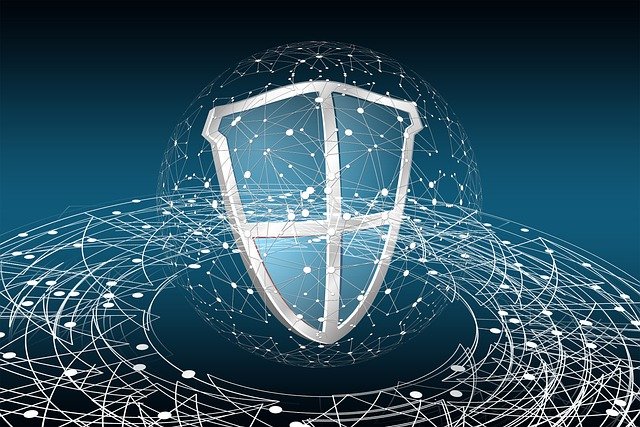In today’s digitally-driven world, companies depend on their computer networks for communication, data management, and online transactions. With all the sensitive information online, cybercriminals are always on the hunt for vulnerabilities to exploit.
Cybercrimes continuously claim millions of dollars and sensitive data leakage from many companies across the globe, making it a necessity for companies to prioritize network security.
Why Network Security Is Important to Businesses
Network security is the cornerstone of protecting a company’s digital assets. It acts as the first line of defense against unauthorized intrusions, preventing cybercriminals from accessing, altering, or deleting sensitive data. This is crucial because data breaches don’t just lead to financial loss, they can also damage a company’s reputation, causing a loss of customer trust that can be devastating.
Moreover, with regulations like GDPR in place, businesses could also face substantial fines for failing to protect user data. Hence, effective network security measures are not just a good business practice, but a regulatory necessity.

Here are 5 reasons why network security is essential to your organization.
1) Protection Against Cyber Attacks:
In an increasingly connected world, cyber-attacks are increasingly becoming sophisticated. Cybercriminals can target your company’s websites, emails, and other online communication channels. Without proper network security measures in place, your company is at risk of losing all your data, financial information, or important documents. Network security systems provide protection against cyber threats, ensuring sensitive information is kept safe.
2) Regulatory Compliance:
Depending on the industry, there are different regulatory requirements that businesses have to adhere to. Companies in the healthcare and financial industry, for example, have to comply with identifiable patient information (HIPAA) and Payment Card Industry Data Security Standards (PCI-DSS). Non-compliance can lead to substantial legal or financial penalties, which can damage a company’s reputation.
3) Employee Training:
Human errors still constitute most security breaches, which is why company employees should undergo regular cybersecurity training. Employees need to understand the dangers of clicking on seemingly innocuous links or attachments. They should also understand what secure passwords are and why they must change them periodically. Incorporating regular employee training programs will make your team more vigilant and aware of vulnerabilities that hackers could exploit.
4) Business Continuity:
In the event of a security breach, it’s critical that you have mechanisms in place to restore the affected areas within your network. Effective network security measures that include implementing firewalls, doing regular backups, and disaster recovery planning can help your business recover from any unforeseeable instances. It’s also important to have data back-ups that help protect your critical information in the event of ransomware attacks.
5) Customer Trust:
Customers trust businesses to keep their data secure. A security breach can compromise customer data, such as personal identification, bank details, or credit card information. A single security breach can cause a loss of trust in customers, taking several years to regain. A company without proper security measures risks losing customers, transactions, and revenues.

Steps to Take for Improved Network Security
The first step in improving network security is understanding the threats that can compromise your system. This includes malware, phishing attempts, and DDoS attacks. It’s also important to have a well-defined policy that outlines what measures need to be taken to keep networks secure.
Once you understand the nature of potential threats, you can create a security strategy that includes implementing the appropriate hardware and software tools to protect your system. Regularly monitoring and testing your network is also essential for staying ahead of any security threats.
Finally, having comprehensive employee training programs in place will equip your team with the knowledge and skills necessary to identify potential vulnerabilities and take the steps needed to secure networks from hackers
Network Security Importance
Network security is important for any organization to protect its sensitive data, intellectual property, and critical IT infrastructure. Lack of network security exposes businesses to hacking, data breaches, and other cybercrimes that can have devastating consequences. Some of the key reasons why network security is important:
1) Protect Sensitive Data:
Network security helps protect sensitive customer and business data like credit card numbers, bank account details, personal information, trade secrets, and more. Any unauthorized access to such critical data can lead to legal and financial issues.
2) Avoid Cyber Attacks:
Network security helps protect organizations from malicious cyberattacks, which can prevent data loss, system outages, and other costly damage. It also helps to reduce the risk of financial or legal problems stemming from a breach or attack.
3) Business Continuity:
In the event of a security breach, it’s critical that you have mechanisms in place to restore the affected areas within your network. Effective network security measures that include implementing firewalls, doing regular backups, and disaster recovery planning can help your business recover from any unforeseeable instances. It’s also important to have data back-ups that help protect your critical information in the event of ransomware attacks.
4) Customer Trust:
Customers trust businesses to keep their data secure. A security breach can compromise customer data, such as personal identification, bank details, or credit card information. A single security breach can cause a loss of trust in customers, taking several years to regain. A company without proper security measures risks losing customers, transactions, and revenues.
Network Security Tools
1) Firewalls: Acting as a barrier between your internal network and incoming traffic from external sources (such as the internet), a firewall is a fundamental tool for network security.
2) Anti-Virus Software: This tool scans, recognizes, and removes malicious software and files. Anti-virus software is critical for preventing, detecting, and eliminating threats.
3) Intrusion Detection Systems (IDS): These tools monitor networks for any suspicious activity and send alerts when such activity is detected.
4) Virtual Private Networks (VPN): VPNs provide a secure internet connection to networks, even if accessed remotely. This ensures that data is safely transmitted across networks.
5) Data Loss Prevention (DLP) Systems: DLP systems prevent unauthorized users from sending sensitive information outside the network.
6) Email Security Solutions: These tools filter out threats that often arrive via email, such as phishing attacks and malware.
Remember, utilizing a combination of these tools is often the most effective approach to network security. It’s important to regularly update them to protect against the latest threats.
Network Access Control
Network Access Control, often abbreviated as NAC, operates as a critical component in the sphere of cybersecurity. It refers to the approach of implementing policies and protocols to prevent unauthorized individuals or devices from accessing a network.
NAC systems identify each device and user attempting to gain access to the network, verifying their credentials before granting access. This process often involves checking if the device has the latest security updates and patches installed. If the device or user fails these checks, access can be restricted or denied, thereby safeguarding the network from potentially malicious entities. It’s a proactive method to prevent potential security breaches and protect sensitive data.

Steps to Take for Improved Network Security
The first step in improving network security is understanding the threats that can compromise your system. This includes malware, phishing attempts, and DDoS attacks. It’s also important to have a well-defined policy that outlines what measures need to be taken to keep networks secure.
Once you understand the nature of potential threats, you can take the necessary actions to reduce network vulnerabilities. Some effective steps organizations can take include:
• Install and regularly update firewalls, anti-malware, and anti-virus software. Firewalls monitor network traffic and block unauthorized access while anti-malware and anti-virus software prevent infections.
• Enforce strong password policies. Require employees to use complex passwords that contain a mix of letters, numbers, and symbols and change them regularly.
• Provide regular employee security awareness training. Educate your team about various social engineering techniques like phishing that hackers use to gain access to sensitive data.
• Monitor network activity regularly. Review logs and reports to detect any unauthorized access or suspicious behavior as early as possible.
• Limit access based on employee roles. Give employees the least access they need to do their jobs to minimize the impact of account compromises.
• Conduct regular audits and penetration testing. Identify and fix vulnerabilities in networks, software, hardware, and processes before they can be exploited.
• Enact a business continuity plan. Establish processes to restore critical systems and recover lost data in the event of a successful attack.
• Stay up-to-date with compliance requirements. Follow industry regulations like GDPR to avoid potential legal issues.
• Consider using managed security services. Tap into the expertise of security professionals to monitor networks, detect threats, and respond to incidents.
Conclusion:
In conclusion, a well-designed network security system is an integral component of an organization’s strategy. Every CIO understands the importance of network security and its role in mitigating risks. With the right application of security parts such as firewalls, antivirus software, data backups, and employee training, businesses can protect their data from cyber threats and guard their reputation, financial status, and overall operations. Be proactive, and invest in network security. Your digital future depends on it.
Contact Cybriant to discuss your network security needs and how we can help simplify them.



